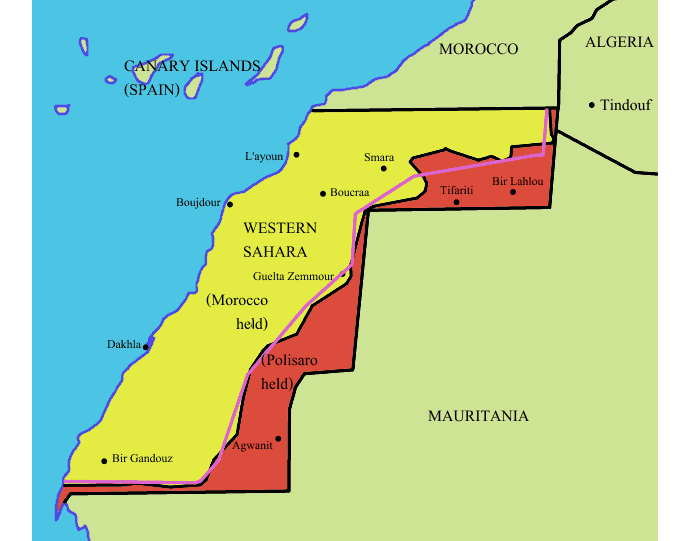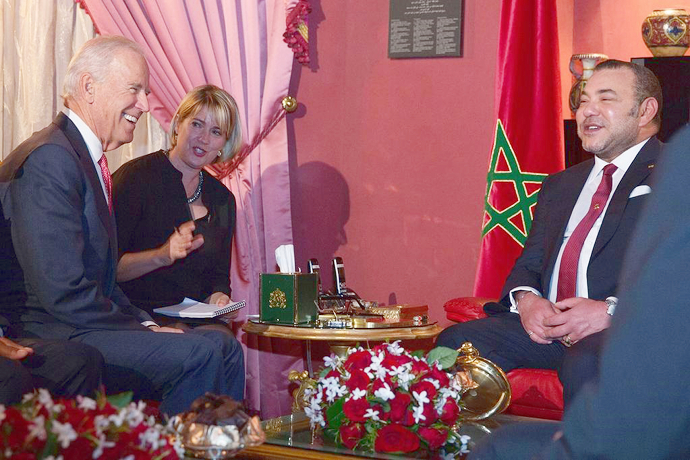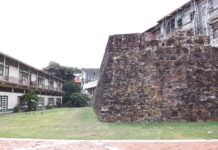Joe and Mo — the United States may, under whatever administration, have a foreign policy that tolerates many sorts of abuses from any given momentary ally. Which may prove useful to said ally if it decides to go after some third country over a policy about which the United States does not much care. Or may prove useful for the United States if Washington wants to put the squeeze on that third country over a relationship with a fourth country, perhaps to threaten Panama about its relations with China. It’s unlikely that the 2020 US election will be fought over any foreign policy issue, as it’s an electorate that for the most part speaks only one language and a large part of which could not locate Panama or Morocco on a map. But after the wreckage of the Trump era, there are some Democrats looking to go back to what was while others will want to walk past that rubble into a different US role in the world. That’s likely to be a powerful undercurrent in the primaries. Whatever happens in US politics, Panama would be at most an afterthought, but would need to adjust to changes coming out of the north. Obama White House photo with then-VP Joe Biden on the left and King Mohamed VI of Morocco on the right.
Panama threatened over its stand
on one of Africa’s last colonies
by Eric Jackson
“If you support secession, we will support secession in your house. And if you support negative groups, we will support negative groups in your territory.” Thus spake Nasser Bourita, foreign minister of the Kingdom of Morocco, about King Mohamed VI’s policy toward Panama.
What’s the problem? The Spanish dictator Francisco Franco may be long dead and just reburied as the Spanish government ordered his bones’ removal from public property at the Valley of the Fallen cemetery and shrine. A deathbed folly of his lives on in the Western Sahara, a mineral rich but sparsely populated Spanish colony that he purported to devolve to Morocco and Mauritania, the northern two-thirds to the former, the rest to the latter. This, in response to and in lieu of an independence referendum that the United Nations had demanded. Since 1965 the UN has repeatedly called for such a vote, and authorities in Spain, then in Morocco, have always found ways to avoid such an election.
At the time, Panama was in the process of ending a colonial situation here, with the non-aligned countries that had mostly been colonies supporting the efforts of General Omar Torrijos’s government to devolve what was the US enclave of the Canal Zone to Panama. As it had in 1821, when it threw it threw in its lot with Simón Bolívar against the Spanish Crown, Panama took the anti-colonial side. In 1978 the Torrijos dictatorship recognize the government set up by the Saharawis’ anti-colonial movement, the POLISARIO Front, the Democratic Saharawi Arab Republic (RASD).
Recognition of the Western Sahara as an independent country has been the default position of Panamanian diplomacy since then, with the exception of a year and a half lapse at the end of the Martinelli years and the beginning of the Varela presidency. Nito Cortizo’s PRD administration has reaffirmed Panamanian support for the independence of the Western Sahara, which makes us one of 83 countries taking that stand but one of only a few in Latin America. The king of Morocco is quite upset about this.
The stakes are minerals and fisheries, mainly a large phosphate deposit that supplies chemical agriculture, munitions and other industries. Spain, the United States, Israel and France are all in one way or another beneficiaries of the resources grab. The people who live in the Western Sahara, and especially those who once did but have been expelled, generally derive negative economic yields from the arrangement.
The Saharawi independence war is in a long-running ceasefire, which came about when Morocco built a long wall defended by some 180,000 soldiers, minefields and many sorts of electronic observation devices. The phosphate mine and a conveyor belt that goes to the Atlantic Ocean are guarded by Morocco. On that side of the wall the gold, lead, uranium and other valuable resources are also to be found. Beyond the wall, Saharawis control. There are a few places on either side of the long wall where the Moroccans or the Saharawis have gained footholds. Much of the Saharawi population has been driven into exile, particularly in a huge refugee camp near Tindouf in the west of Algeria but also with substantial communities in Spain and France. One of the few things that keeps the Saharawi cause in the world’s eye is the activity of pro-independence Saharawi women’s groups in Spain and France.
A the time of Morocco’s takeover of the Western Sahara, there were an estimated 800,000 to one million Saharawis. Morocco has driven away many of these, and moved more than 300,000 Moroccans into the area. One of the dodges by which the Moroccan royal family has for decades avoided a referendum is its insistence that Saharawis in exile can’t vote and Moroccans transplanted to the Western Sahara can.
Soon after Spain’s devolution of the Western Sahara to Morocco and Mauritania, POLISARIO forces knocked the Mauritanians out of the war. But Morocco then moved in to take over the claims that Mauritania renounced in favor of the Saharawis.

The basic lay of the land in an African colonial war.
So what next?
Morocco has threatened to shut down the Panamanian embassy in Rabat, which might actually dovetail nicely into Nito Cortizo’s government austerity plans. On the other hand, it might deprive Cortizo of an option to send off one of his party’s more annoying politicians on a diplomatic mission. (Perhaps to make up the loss, and notwithstanding their allegedly inferior potassium, Panama could open an embassy in Uzbekistan for that purpose.)
Support for subversion here? In the grand scheme of things Morocco has relatively few resources of its own and no appreciable ideological following for this purpose. But the king is a rich man — Forbes magazine estimates the king’s fortune at around $5.7 billion, making him Africa’s fifth wealthiest man. Also, Mohamed VI’s kingdom could become a conduit for funding by ultra-right Christian fanatic networks, countries annoyed about Panama’s relations with China or so on to play either national Panamanian politics or to aggravate the ethnic divisions that we have here but which politicians will rarely admit. Little groups of racist xenophobes who wave hangman’s nooses in front of church doors could suddenly find a new source of funding that they would not care to admit. Pushing in the other direction, perhaps Panama’s home-gown political irritants could be excoriated or even arrested as Moroccan spies.
Contact us by email at fund4thepanamanews@gmail.com
These links are interactive — click on the boxes












